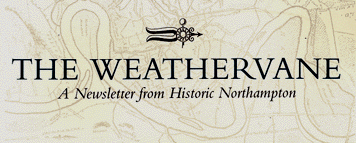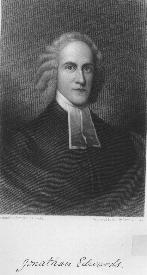

|


Weathervane Newsletter Summer 1997

Book Review: The Ghosts of Jonathan Edwards
Joseph A. Conforti, Jonathan Edwards, Religious Tradition, and American Culture. Chapel Hill: University of North Carolina Press, 1995. Pp.xi, 267.
Jonathan Edwards has inspired or provoked an enormous and ever-increasing flow of scholarly commentaries and highly specialized studies - the volume of which almost equals his own prodigious output. Joseph Conforti's book is one of the most recent contributions to Edwards studies. But it is less about Edwards and his work than it is about Edwards' legacy and how it has been constructed and re-constructed over the last two centuries.
Conforti argues that our notions about Edwards and the Great Awakening are highly colored by apologists for the Second Great Awakening who sought to link their movement with a tradition largely of their own invention. While some scholars, following Perry Miller, have seen the lingering shadow of Edwards' influence largely in the writings of Emerson and the transcendentalists of the mid-nineteenth century, Conforti seeks to chronicle Edwards' impact on religious discourse up until the Civil War. Edwards' notions on personal piety, revivalism and theology influenced the life and work of those such as Lyman Beecher, Charles Grandison Finney and Mary Lyon. It was this Victorian reincarnation of Edwardsian Calvinism and not an earlier Puritanism that later Victorians like Harriet Beecher Stowe, Henry Ward Beecher and Emily Dickinson sought to escape.
Though most traces of Edwards' Calvinism in mainstream Protestantism were buried by the materialism of the Gilded Age, Conforti shows how Edwards became an icon in the "colonial revival" of the late 19th century, especially in Northampton, as nativist Victorians sought a usable "Puritan" past to defend Yankee traditionalism from cultural assaults. In the post-World War II era, neo-orthodox theologians resurrected Edwards from his burial by progressive-era historians. But their portrayal of Edwards as an isolated genius tragically victimized by irrational forces of his own unleashing, according to Conforti, mirrored their own fears of populist politics in the McCarthy era. Instead, Conforti argues, Edwards left a healthy, lively, if contested, religious tradition, reflected in the new professionalized scholarship at Andover and the more "Methodized", popular Edwardsianism that persisted and flourished well into the mid-nineteenth century.
As intriguing as this study is, however, one does not find the living, breathing Edwards, nor but a shadow of his eighteenth century world in these pages. For that, Patricia Tracy's Jonathan Edwards, Pastor: Religion and Society in Eighteenth-Century Northampton (New York, 1980) remains definitive.
Contents Historic Northampton.